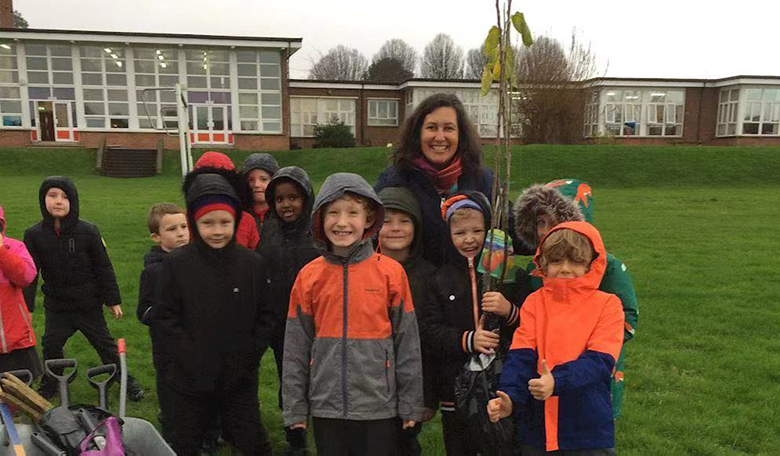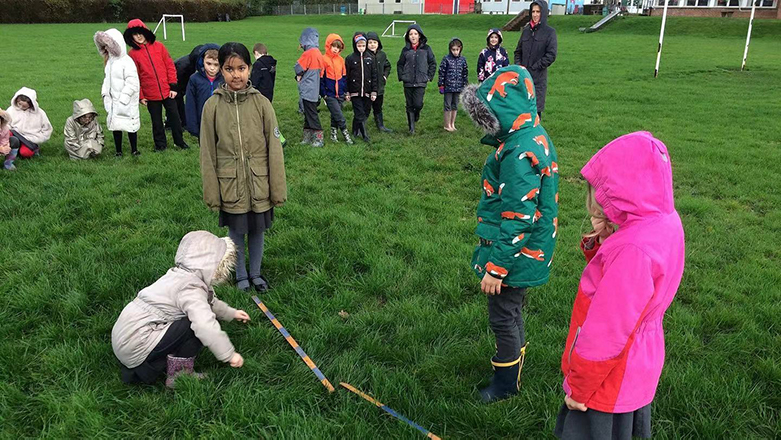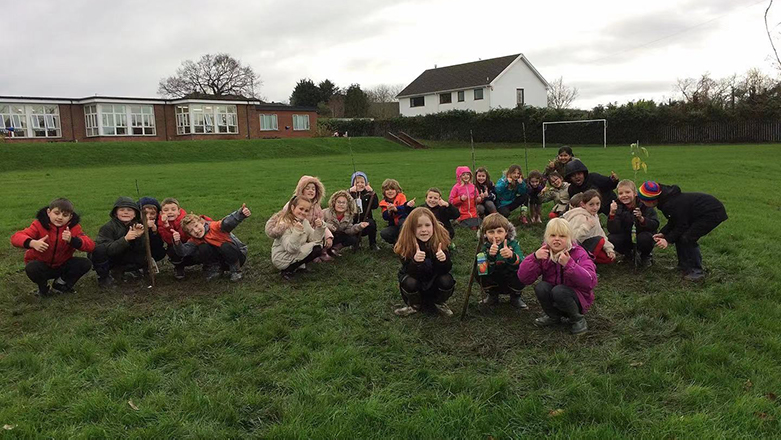The fruitful orchard project makes an effort to provide teachers with necessary skills to establish a small orchard to use it as a learning resources.

Source: Fairfield Primary School
Children of Fairfield primary school receives training of establishing their small orchards to help them create a strong sense of connection with the nature.
The fruitful orchard project will help teachers grasp the skills of establishing a small orchard. It can be used as a learning resources.
“ It’s proven to help learners of all ages develop a stronger connection with nature and enhances environmental awareness that leads to positive behaviours in the long term. The planting of fruit trees also helps to increase biodiversity and mitigate the effects of climate change,” said Nadia De Longhi, Operation Manager of Natural Resources Wales.
The project is to get more children, young people and adults to appreciate and connect with nature in order to help them become active, healthy, ethical and responsible citizens that are able to influence others about the importance of looking after our environment now and in the future, according to Natural Resources Wales.
Natural resources Wales aims to enhance the sustainability of natural resources and children can learn to protect our natural resources including air, land, wildlife.
Apart from providing fruit trees, NRW also provided training to schools to help pupils get the most out of learning and experiences. The Fruitful Orchard Project offers pupils with opportunity to feel connected to the nature as well as improve biodiversity by providing habitats for small animals.

Source: Fairfield Primary School
“I’m particularly pleased that Fairfield Primary, my local primary school has embraced the scheme making sure that their trees have everything they need to thrive. I look forward to visiting their fledgling orchard as soon as possible,” said Councillor Lis Burnett.
“Planting more trees in urban areas will also increase biodiversity by creating new habitats with food for birds and insects. They also absorb carbon dioxide, so trees play an important role in climate change mitigation, as well as removing air borne pollutants,” said Nadia.

Source: Fairfield Primary School
“They can also mitigate the extremes of climate change, helping to reduce storm water run-off and can help to cool the air in cities between 2 and 8 degrees Celsius, which reduces the urban “heat island” effect,” said Nadia.
Students will be well-equipped for tree planting and safety on the day of planting .
“Trees are an essential component of our urban ecosystems, delivering a range of services to help sustain life and promote well-being. Research shows that living in close proximity of urban green spaces and having access to them, can improve physical and mental health,” said Nadia.
